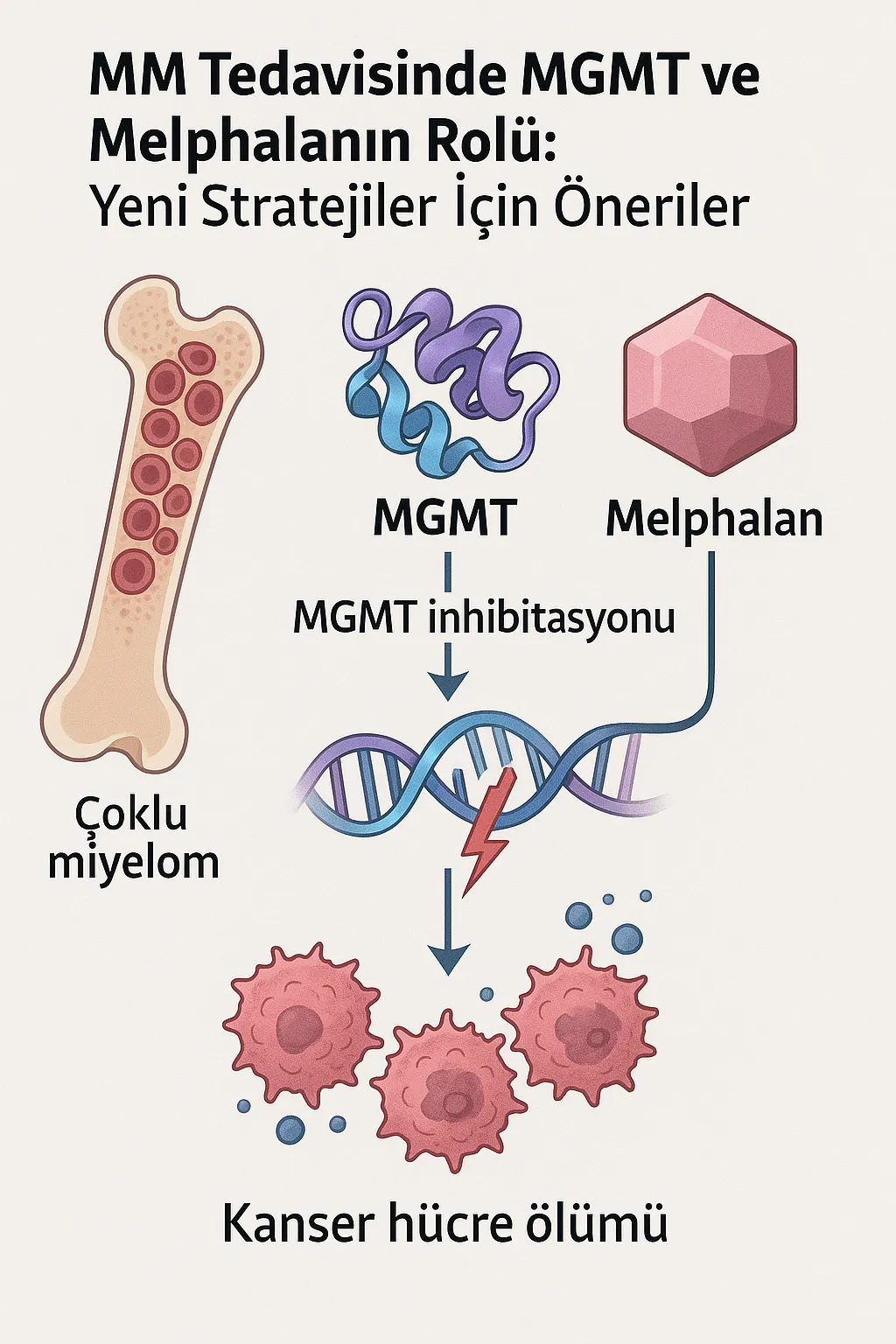The Role of MGMT and Melphalan in MM Treatment: Recommendations for New Strategies
Yapılış Tarihi | 29 April 2025, Tuesday

Multiple myeloma (MM) is a blood cancer characterized by the excessive proliferation of plasma cells producing monoclonal antibodies in the bone marrow, which can lead to organ damage. Although patient survival has increased with a wide variety of new drugs developed in recent years, the recurrence of the disease in most cases brings up the issue of resistance to treatment, and therefore MM is included in the group of incurable diseases.
Scientists indicate that one of the reasons for this resistance is the ability of cancer cells to repair DNA damage. At this point, a DNA repair protein called MGMT stands out, which can help cancerous cells repair damaged DNA and develop resistance to chemotherapy.
The Importance of MGMT in MM Progression
In the conducted research, MGMT causes cancer cells to become resistant to chemotherapy drugs by repairing DNA damage in these cells. It is observed that the drug melphalan, which is commonly used in MM treatment and creates DNA damage, is more effective when MGMT is suppressed. The research examines the role of MGMT in both different cell lines and patient samples. The findings suggest that treatments targeting MGMT could slow the progression of the disease and reduce resistance to drugs. This development is foreseen to pave the way for new and more effective methods in MM treatment.
A New Perspective on the MGMT Protein in the Fight Against Cancer
The research reveals that in MM, a bone marrow cancer, an important protein can be targeted to overcome cancer cells that develop resistance to treatment. This protein, MGMT, causes cancer cells to form resistance to treatment by repairing DNA damage. The study suggests that inhibiting MGMT, when used in conjunction with the chemotherapy drug melphalan, leads to more effective destruction of cancer cells. Suppression of MGMT increases DNA damage, ensuring the death of cancer cells and enhancing their sensitivity to treatment. Researchers state that these new findings indicate that MGMT inhibition is a promising way to overcome the chemoresistance problem in MM treatment and increase treatment effectiveness.
Study Link: https://doi.org/10.1111/cbdd.14465


